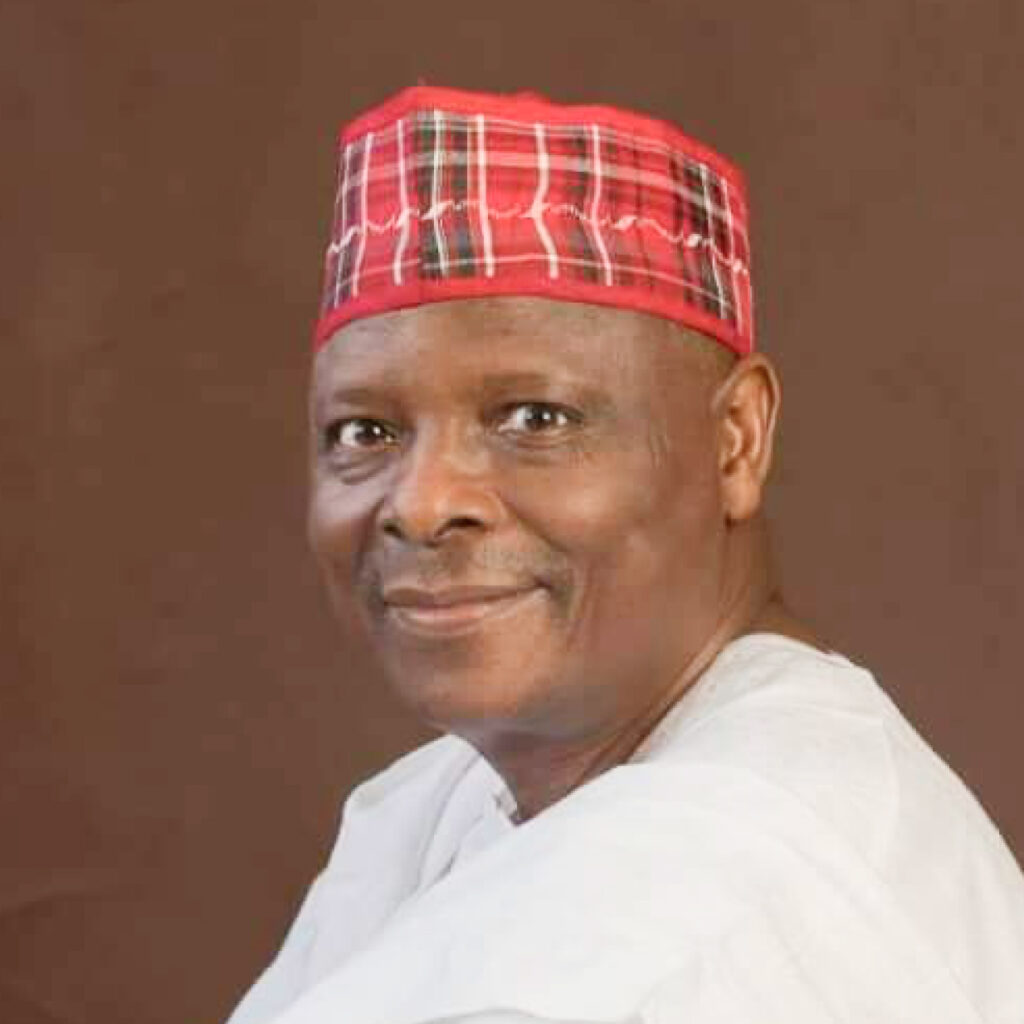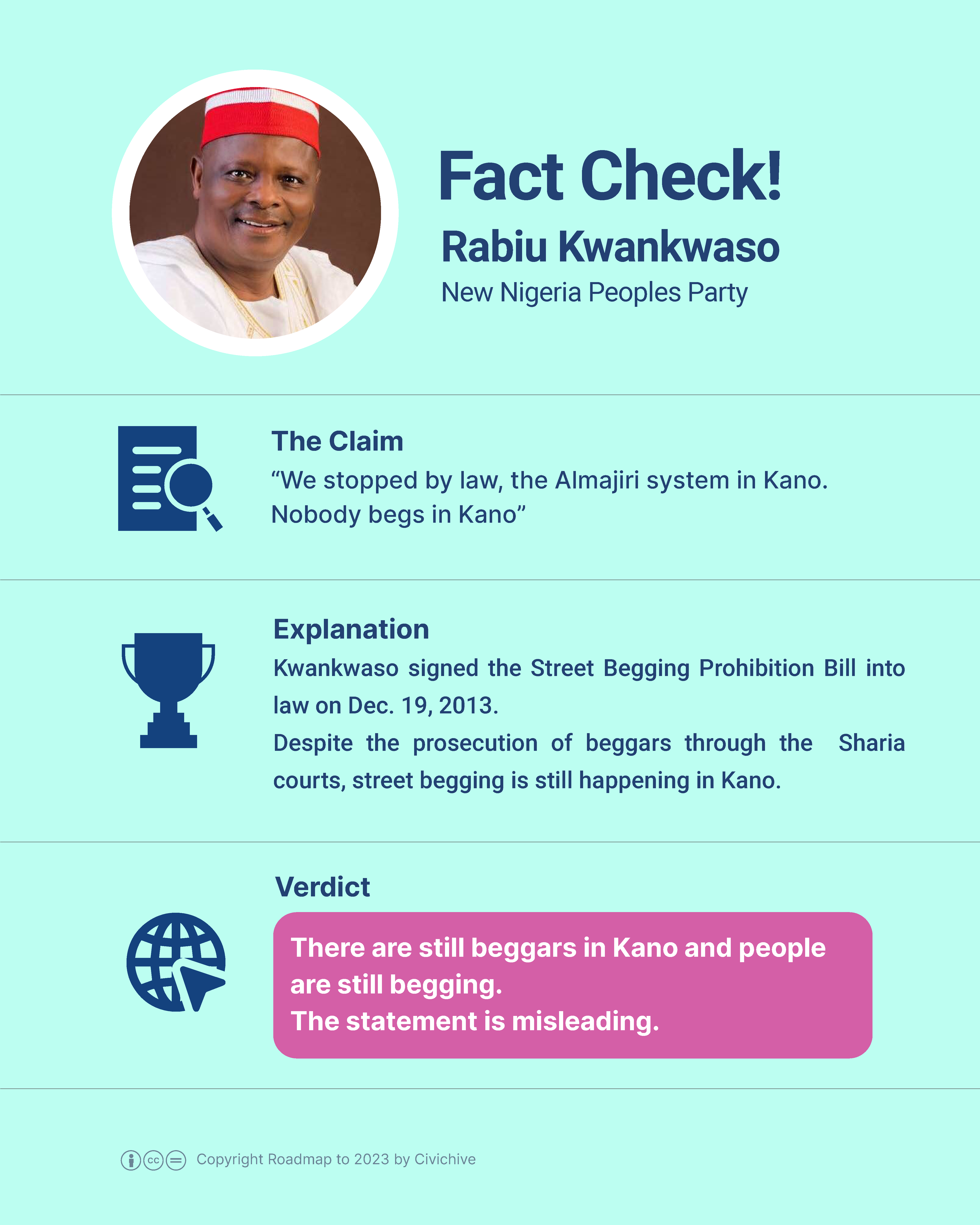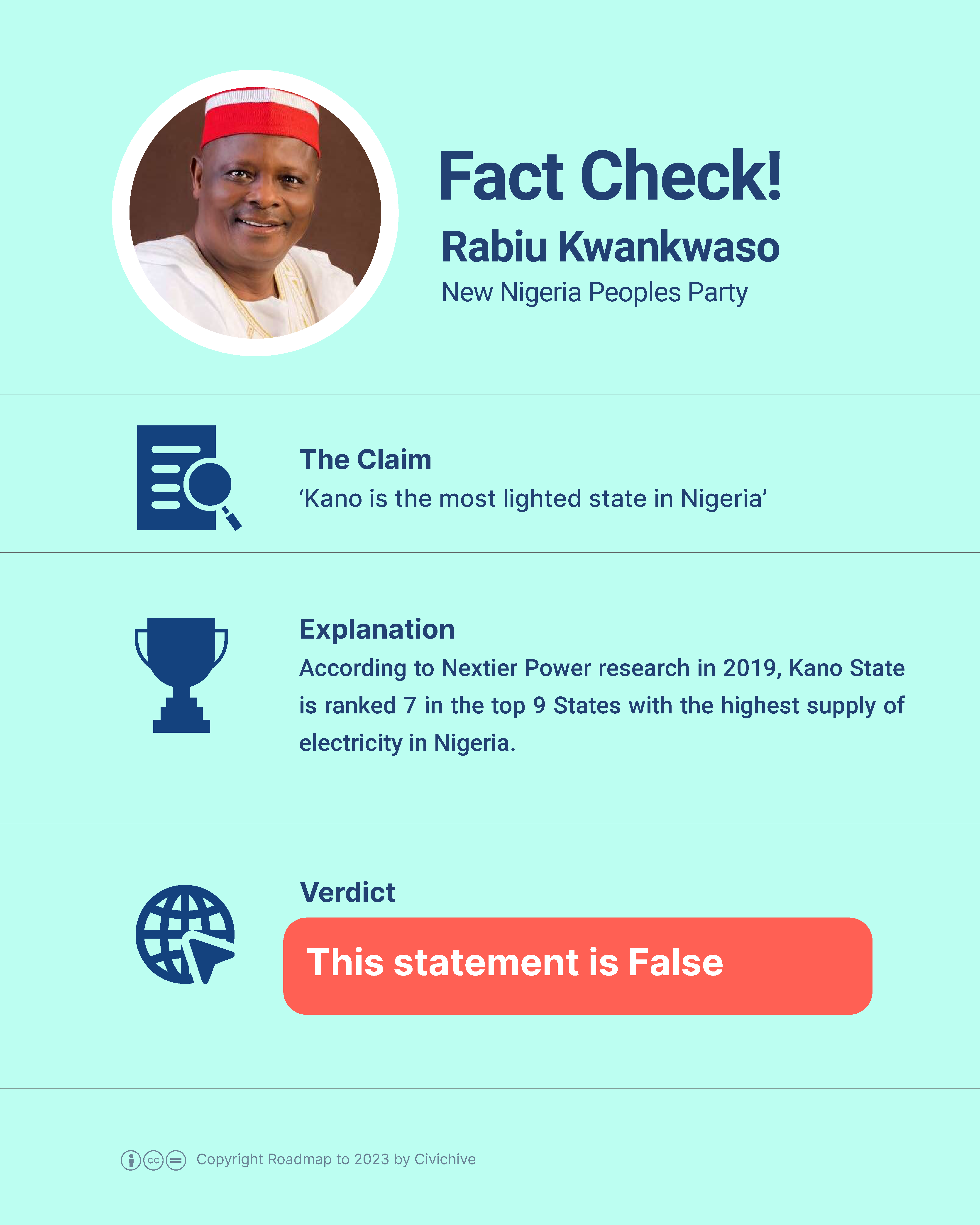Candidate Speaks

Rabiu Musa Kwankwaso
Political Party: New Nigeria People’s PartyAlma Mater: Middlesex Polytechnic Loughborough University of Technology
Occupation: Politician, civil servant and engineer
Age: 66
Presidential
Rabi’u Musa Kwankwaso, FNSE, FNIQS (born 21 October 1956) is a Nigerian politician who was the Governor of Kano state from 1999 to 2003 and 2011 to 2015. After he lost his re-election in 2003, he was appointed the first Minister of Defence of the Fourth Republic with no prior military background from 2003 to 2007, under the administration of former president Olusegun Obasanjo. He was later elected to the Senate in 2015, serving one term under the platform of the All Progressives Congress (APC) representing Kano Central Senatorial District.
He is currently the national leader of the New Nigeria Peoples Party Kwankwaso enjoys widespread support in Kano and north-western Nigeria; he has been viewed as a charismatic populist.In 2011, he was re-elected governor of the state and went on to join the All Progressives Congress (APC) in 2014. In 2015, Kwankwaso unsuccessfully contested the presidential primaries nomination under the opposition All Progressive Congress, but lost to Muhammad Buhari. In 2018, he returned to People’s Democratic Party (PDP) and contested the presidential primaries losing out to Atiku Abubakar. Rabiu Musa Kwankwaso, has been confirmed as the presidential candidate of the New Nigeria Peoples Party (NNPP) for the 2023 general elections.
Fact Check


Policy Document
Promises
- We shall reform the education sector in its entirety to ensure accountability, expansion of access, and improvement of quality. Every Nigerian must have access to good, quality education not minding their social status;
- We shall incentivise enrolment of children from poorly served communities.
- Commit to eradication of illiteracy in Nigeria. Every adult shall have the opportunity to acquire literacy and engage in lifelong learning;
- Mop up the 20 million out-of-school children in Nigeria in the next four years;
- Provide one meal per day per child in all basic schools through the innovative involvement of Community
Participation and Reorientation Committees across the country; - Government will work with all stakeholders to arrest the rot and the decay in our tertiary education institutions and ensure that the perennial industrial action by staff unions is brought to a permanent stop;
- Improve funding for research and innovation;
- Establish Federal Ministry of Higher education and Human Capital Development;
- Education being among the leading priorities, will enjoy adequate funding and support at all levels of provisioning;
- Help teachers and other stakeholders to play their role in making Nigeria attain greatness.
- We shall reform the health sector in its entirety to ensure professional accountability, quality of service, and professionalism;
- Expand access to medical education and training to provide more professional personnel to serve our communities;
- Improve sanitation and hygiene in public places. Provide the general framework for states and local government councils to develop the guidelines for sanitation inspectors;
- Provide, in conjunction with states and local government councils, free natal and maternity healthcare services for families;
- In conjunction with other levels of Care provisioning, our administration shall coordinate the provision of mobile clinics to access under-served communities across the country;
- Upgrade and modernize all tertiary level hospitals in all states of the federation with a view to expanding access and improving quality of healthcare services;
- Upgrade and equip all specialty hospitals to tackle the diseases that cause most death and disability in Nigeria, e.g. malaria, cancer, diabetes, renal diseases, tuberculosis, etc.;
- Undertake comprehensive reform of medical and health education to create more opportunities and meet the manpower needs of the sector;
- In the Short and medium term, the goal is to generate, transmit and distribute 20,000MW of electricity by 2023 – 27. Specifically, the overall target for our administration is to increase electricity generation, transmission and distribution from less than 6,000MW capacity currently to 15,000MW20,000MW by 2027.
- RMK shall make significant investment in distributive power and alternative energy technology such as developing coal and other renewable energy sources (like Solar, Wind, Hydro and Biomass).
- A focused rural electrification programmes that will facilitate the expansion of transmission and distribution lines to rural Nigeria will be pursued.
- In addition to this, our administration shall establish a monitoring and evaluation mechanism for regular and standard maintenance of all power infrastructure.
- We shall ensure the review and completion of all on-going power projects, and at the same time provide more incentives for private sector participation in the power sector.
- The construction of motorways to connect all state capitals in the country
- The construction more bridges and flyovers across the major rivers and at the major intersections of motorways
- The construction of federal bridges and flyovers in coastal cities to ease congestion and improve movement of goods.
- The size of the Nigerian Armed Forces will be built to about One million active service men and women. This entails recruiting an addition of about 750 thousand more personnel into the armed forces.
- The size of the Nigerian Police will also be built to about One million active service men and women. This
will bring the police to citizen ratio to 1:220 (much better than the UN recommended minimum of 1:450). - The numbers can easily be obtained from the pool of able-bodied unemployed youth that are roaming our streets in all the 8,809 wards.
- Community Participation and Reorientation Committees (CPRC) will be involved together with the formal government structures in recruiting the police and soldiers to ensure that every person selected is
not only known but also of good character in his/her community. - After the special operation that will bring to an end the menace of terrorism, violent extremism, kidnapping for-ransom, banditry, farmers/herders clashes, and any such insurgency threats, bulk of the armed forces and the police will then be redeployed to other productive activities such as: engineering works, healthcare works, housing infrastructure works, agriculture services, and such other public interest works.
- We will deploy our forces to peacekeeping missions in West Africa, Africa and across the world whenever the need arises so as to continue contributing our quota towards sub-continental, continental and global peace and security.
We shall therefore pay special attention to agriculture and introduce, as a mantra for our food security objective, a National Campaign to be christened: Eat What You Till, Use What You Produce. NNPP administration will ensure that issues bordering around the following are promptly addressed:
- Farming Communities;
- Establishment of Commodity Board;
- Technology transfer and acquisition;
- Animal husbandry;
- Employment generation.
- Our economic plan is about you, and is centred on you! because at every stage of your life – from birth to school years to career development and business, to family and getting old and up to your retirement life – everything you do depends on a sound and strong economy;
- We will run an emergency rescue plan to salvage the economy, protect the citizens’ savings, restore fiscal
discipline, improve crude oil and gas production, improve non-oil revenue, target inflation, save the Naira from the current uncontrolled devaluation, and limit capital flight from the country; - We shall Expand the tax base and the tax net by ensuring that businesses that are actively avoiding and/or evading tax are brought into the tax system;
- We shall Create the enabling environment where trade, investments and businesses will blossom and manufacturing (re-industrialization) will be the pivot upon which the Nigerian economy will stand;
- More and more jobs will be created through targeted investments, special accelerated projects and programmes,
- The economy will be actively diversified. Aggressive effort will be made to strengthen the non-oil sectors, hone the potentialities, harness the opportunities and harvest the yields for the good of all Nigerians;
- Recognizing that our debt profile is quite unhealthy, we shall renegotiate and reschedule the debt repayment portfolio so.
Jobs, and jobs, and more jobs will be created at multiple levels through the Economic Revamping Strategy as well as through the constructive engagement with the youth by honing their skillsets and providing them with necessary support.
The successive administrations have exhibited the greatest disregard to the rule of law in the democratic history of Nigeria: court orders are utterly ignored without any remorse. The state of justice administration in Nigeria today is so pitiable that ordinary Nigerians are losing faith in the judiciary.
In respect of the judiciary, two things are very dear to the NNPP administration: one is upholding the rule of law; and two is a comprehensive judicial reform. These are pertinent if we are to build a nation of productive, competent, confident and patriotic citizens. They are also necessary if we are to build confidence in our society and win the trust of international capital and international investors that are direly needed to support the development and growth of our economy.
- To prevent corruption, we shall overcome vested interests via:
- Running a transparent an open government;
- The use of the latest advanced technologies to capture, analyse, and share data to prevent, detect, and deter corrupt behaviour;
- Exposing corrupt activities and risks that may otherwise remain hidden;
- Keep the public sector honest, transparent and accountable;
- Ensure that public sector employees act in the public interest;
- Ensure compliance with the Seven Principles of Public Life: Selflessness, Integrity, Objectivity, Accountability, Openness, Honesty, and Leadership-by-Example; and
- Reform and strengthen anti-corruption institutions.